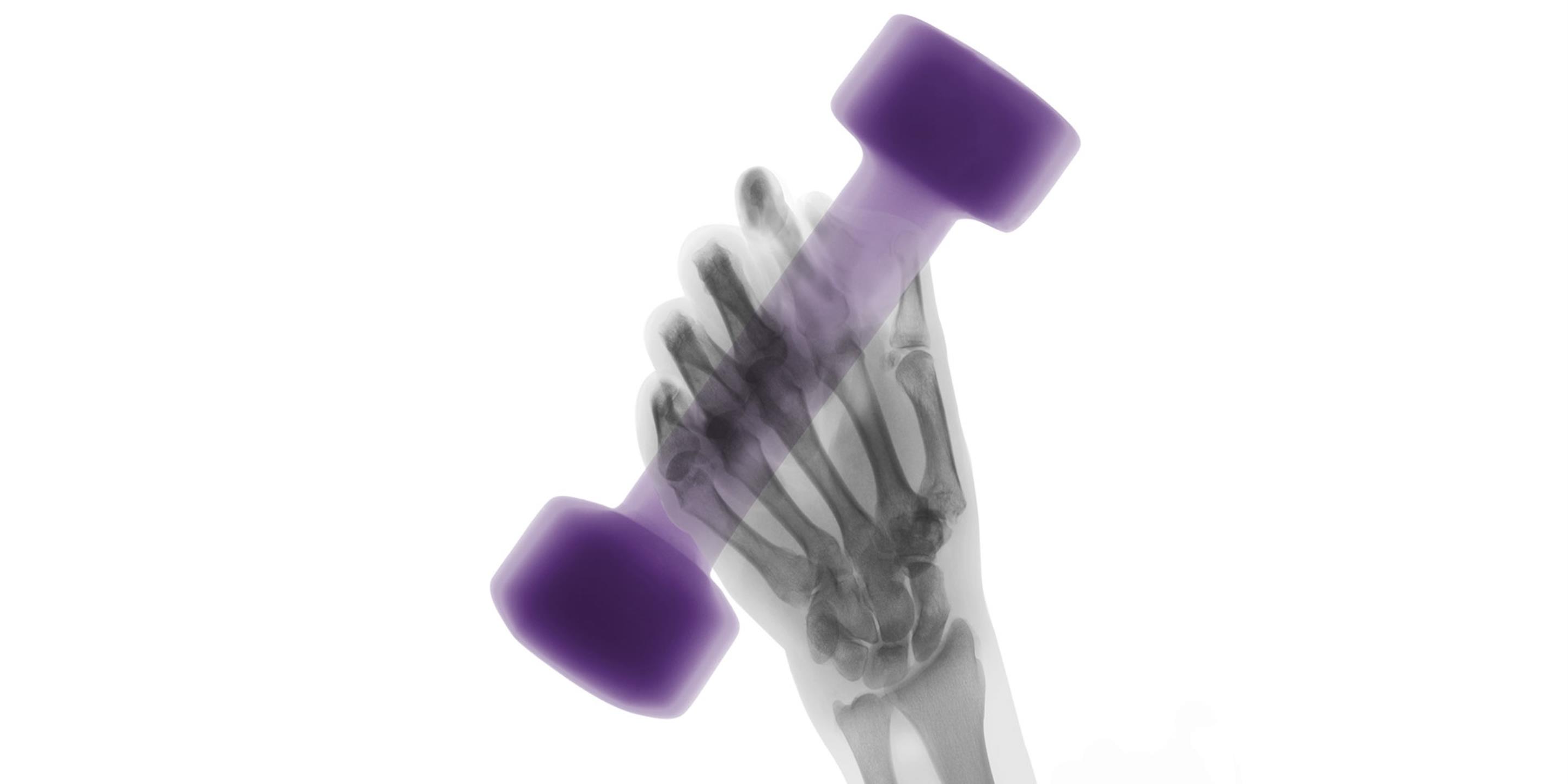Though tough to track, marrow fat measurements could indicate bone and metabolic health.
Every athlete knows that education is a crucial part of performance. Sport and exercise research, insight from top trainers, science, and technology help you to better understand your body so you can craft a healthier lifestyle, workouts, and recovery plan.
In our daily news series, experts address some of the latest fitness research, nutrition, and health stories.
TODAY'S TOPIC: HOW WORKING OUT REGULARLY REDUCES BONE FAT
Burning bone fat via exercise may actually make your bones healthier, according to a new study in the Journal of Bone and Mineral Research. Researchers at the University of North Carolina found that after exercising for six weeks, both obese and lean mice reduced the overall size of fat cells and overall amount of fat in their bone marrow. In fact, the marrow fat of exercising obese mice looked virtually identical to the marrow fat of lean mice. Simultaneously, the exercise groups had thicker, healthier bones.
This study is important because its findings suggest that the fat in bone marrow is actually used locally as fuel during exercise, potentially to help build stronger muscles and bones, says Maya Styner, M.D., assistant professor of Endocrinology and Metabolism at the University of North Carolina Chapel Hill.
Even though the fat content of bone marrow is difficult to measure in humans, in theory, a lower marrow fat count in a fit person could be a good marker of bone or metabolic health, Styner adds. Outside of warding off problems down the line such as osteoporosis, “good bone mass and bone strength can decrease the risk for sports injuries or fractures and can improve healing if an injury does occur,” Styner says. “Stronger bones will also support stronger muscles and there is a close interaction between muscle and bone in endurance athletes.”
The best types of exercise to burn bone fat and fuel the marrow's ability to build stronger bones are impact sports like running, basketball, or heavy-load strength training, says Matt Berenc, director of education of the Equinox Fitness Training Institute. “Though most any movement that stresses your system will help,” he adds. The one that won’t: Swimming, since you’re actually working under less-than-body weight.
